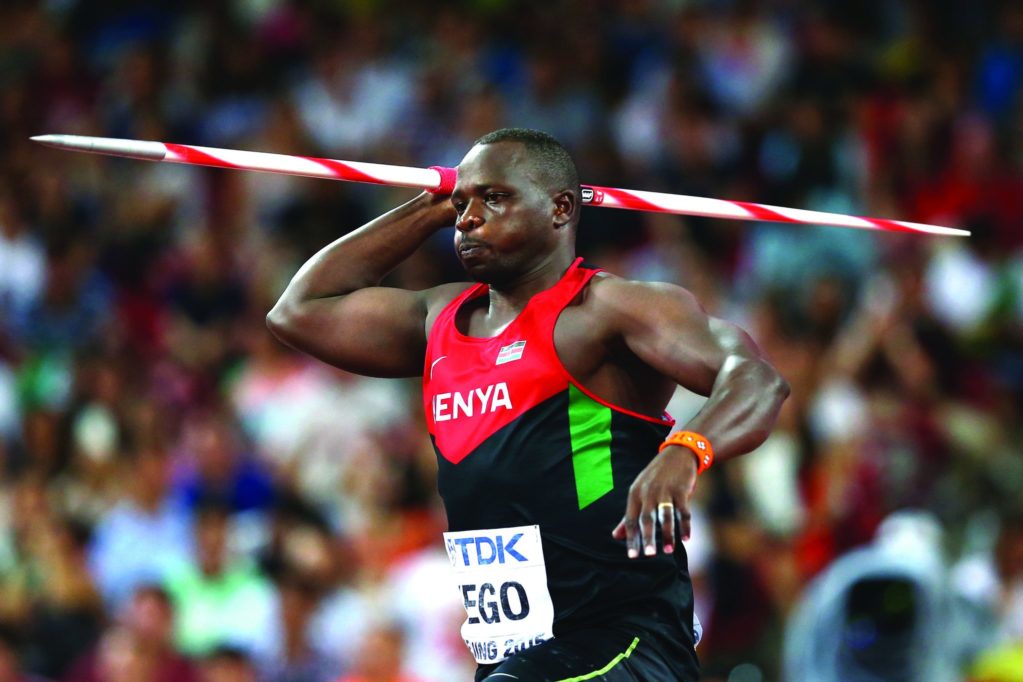Strong powerful legs slam the tartan floor, each stride gaining an increasingly large distance from the rest of the field. Arms pumping gently, mouth slightly ajar, his body moves in a methodical rhythm. Suddenly, oozing a combination of grace and power, he quickens the pace, his eyes locked on the stopwatch ahead. A crescendo applause fills the stadium as he glides towards the finish line. “They’ve done it again,” the commentator roars, “Kenya takes the gold medal.” Heartfelt celebrations ensue as he fights against the post-race exhaustion. One man has an entire nation on its feet. Glory!
Every four years at the Olympic Games, an interpretation of this scene seems to occur in the track events. Since the incomparable Kipchoge Keino won two medals in Mexico in 1968, Kenyan athletes have dominated middle to long distance running at the Olympic Games.
While the Games are never without drama, the months preceding are usually fairly calm for athletes. This year was an exception. The months before the 2016 Rio Olympics proved to be arguably the most contentious period for Kenyan athletes in the nation’s Olympic history. From delayed legislation, to surprise Twitter announcements, Kenyan athletes and supporters rode a rollercoaster of emotions before the East African nation was finally given the green light to participate in the Games this August.
The strife first emerged at the beginning of the year when the World Anti-Doping Agency (Wada) announced that Kenya would be placed on a watch list. Stemming from a Wada report that was bolstered by more claims of bribery, extortion and Kenya’s legislation towards doping (or lack thereof), the country was in hot water. In February, Wada Director General David Howman stated
“Wada is most disturbed by these reports regarding extortion and bribery at the national level of sport,” said Wada Director General, David Howman, after claims that Athletics Kenya had asked two banned Kenyan athletes for a bribe in exchange for a shorter sentence.
Loading...
Following these claims, the country missed two Wada deadlines to establish anti-doping legislation (February and April). The athletics powerhouse was officially at risk of being banned from the 2016 Games. In April, however, President Uhuru Kenyatta assured the nation that an Anti-Doping Bill would be passed by Parliament and that he would sign it into law before the May 2 deadline.
“There would be no excuse to deny [the Kenyan] team from participation in the Rio de Janeiro Olympics in August,” said Kenyatta.
On April 22, Kenyatta signed the bill, which criminalized doping in Kenya. Kenyans were reassured that they would watch their heroes strive for Olympic glory once again.
Back in Kenya, athletes continued to train for the Games. In late April, the Kenya Defence Forces (KDF) Athletics Championships took place on the outskirts of Nairobi. Winners would represent the KDF team, which would participate in the National Athletics Championships in July. This is where the Olympic fate of Kenya’s best athletes is decided.
Kenyan athletes also continued to excel internationally in the build-up to August. Scooping top spots in both the women’s and men’s races at the London Marathon, where Eliud Kipchoge beat the course record, Kenya’s athletes showed the world that they were able to remain focused despite the controversy.
More controversy was to come though. In May, Athletics Kenya announced the marathon squad to participate in the Olympics. The current holder of the marathon world record, Dennis Kimetto, wasn’t selected, sparking furious debate as sports enthusiasts put the doping controversy aside. Less than 72 hours later however, WADA would divert attention with the following statement: “The WADA CRC has made the unanimous recommendation that Kenya be declared non-compliant with immediate effect.” It claimed there were “inconsistencies” with the Kenyan legislation.
The news was a huge blow to the country, which believed it was on track for Rio.
“How is this happening? …I’m shocked,” said Keino, the former Olympic hero and Chairman of the National Olympics Committee of Kenya (Nock).
The rest of Kenya was just as flabbergasted. Many took to social media to express their disbelief and disappointment, including World Champion javelin thrower Julius Yego, who is an avid social media user (Yego learned how to throw the javelin by watching YouTube videos).
“It’s worrying and painful to remember the sacrifice, perseverance, dedication put towards achieving the success and ultimate goal and suddenly get [it taken away from] you! It’s heartbreaking and saddening!!” (sic),” said a perturbed Yego, who had been regularly updating his supporters through his Facebook page.
Yego’s words personalized a debate that had raged around the world for months. A blanket ban for Kenya would be disastrous for the country, but it would be devastating for the Kenyan athletes who were genuinely training hard to fulfil their Olympic ambitions come August 2016. Perhaps for the first time, Kenya started to envision an Olympics without its proud athletes participating.
Shocked into action, a couple of days later, a Kenyan delegation, with Cabinet Secretary for Foreign Affairs, Amina Mohamed, and Cabinet Secretary for Sports, Hassan Wario, flew to Montreal, Canada, to meet Wada officials. Here Kenya agreed to a roadmap allowing the country to become fully compliant with Wada’s code after making amendments to the Anti-Doping Act. In addition to this, reports flooded in that while WADA had deemed Kenya non-compliant, the power to ban the country from Rio ultimately lay with the International Association of Athletics Federations (IAAF), which said that Kenya was eligible to participate in Rio, unless the International Olympic Committee (IOC) said otherwise. A collective sigh of relief could be heard in Kenya.
For now it appears that Kenya is in the clear, and while it is very evident that the issue of doping is a complex challenge that Kenya must urgently deal with, one can only wonder how prepared Kenyan athletes are. They need to put the drama behind them and represent their country at the Olympics with as much conviction as ever.
Loading...
